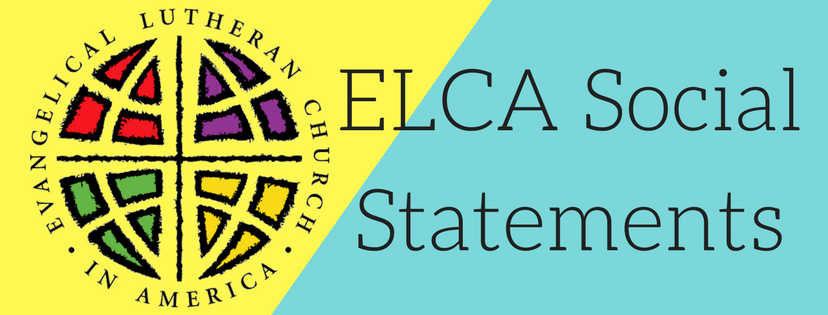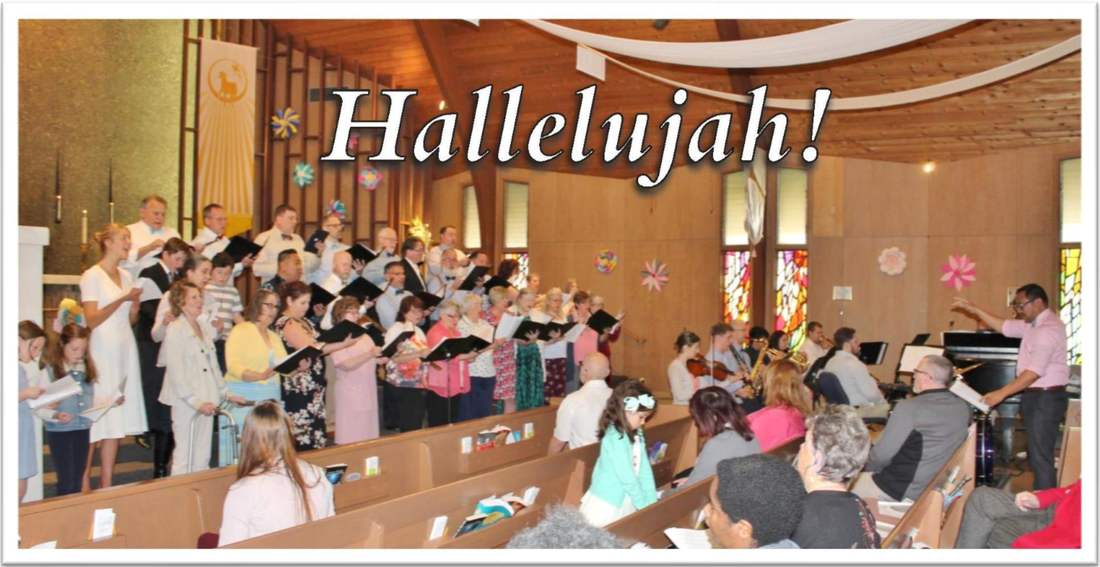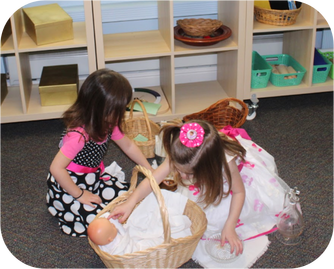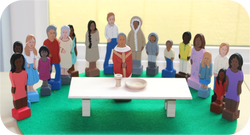|
The ELCA is requesting study and input on a couple social statements this Summer. As noted on the ELCA website:
"ELCA social statements are teaching and policy documents that provide broad frameworks to assist us in thinking about and discussing social issues in the context of faith and life. They are meant to help communities and individuals with moral formation, discernment and thoughtful engagement with current social issues as we participate in God’s work in the world. Social statements also set policy for the ELCA and guide its advocacy and work as a publicly engaged church. They result from an extensive process of participation and deliberation and are adopted by a two-thirds vote of an ELCA churchwide assembly." The next churchwide assembly is in August 2019. In preparation, there is opportunity to provide input on two statements. You can learn more and find resources to study and share your input by clicking on the specific social statement listed below.
This is a wonderful opportunity to guide ELCA Churchwide social statements. You can do this individually or form a small group to study and discuss over a few weeks and share your consensus. If you have any questions, you can contact Laurie Gaumer or Theo Olson.
0 Comments
by Pastor Manda
You might have noticed recently that the language of our liturgy has changed on a Sunday morning. We do that seasonally. But if you’re at all familiar with the music that comes out of the Lutheran Book of Worship, you’ll notice that we’ve changed the language from what has been used in the past. Most of the language from that book uses male pronouns for God. It was published in the 70’s and approved by all the major Lutheran denominations. But the story of that primary liturgy resource for our denomination isn’t unique. The Evangelical Lutheran Worship book was published in 2006 and does the same thing, only uses male pronouns when referring to God. I find it particularly annoying. I might not be so annoyed if I thought that God was a human. But I don’t think that God is human. And our scriptures tell us this is so. Throughout our scriptures, many writers have used various ways to describe their experience of God. God is a warrior, a protector, a creator, a source, a redeemer, one who sustains and enlightens, that which empowers and condemns. With the examples of scripture we could call God: Yahweh (or YHWH), Abba, Ancient of Days, Elohim, El-Shaddai, Adonai, Theos, Christ, Immanuel, Manna, Alpha, or Omega. Or we could take influence from societies and traditions born from the scriptural tradition and call God The Light, Jehovah, Deus, Dieu, Dios, Gott, Bog, Shen, Cheon-ju, Mykapal, Allah, Nkosi, and Jah. But the influence of patriarchy (a system of society in which men hold the power) has meant that most of the language we use for God is “he”. This is powerful in the way that we refer to one another as well. How many times have you referred to a room full of people as “guys” or used “mankind” to describe human endeavors? How many of us speak primary languages which default to the masculine pronoun in plural references? In her book “Wearing God: Clothing, Laughter, Fire, and Other Overlooked Ways of Meeting God,” theologian Lauren Winner talks about how the words we use to describe God can limit or expand our ability to meet God in our daily lives. In an interview about her book, she said this about our limited language for God: “What happens when you think about God as the psalmist did, God as a wild dog? Maybe that images holds some things that “shepherd” doesn’t. When I simply say “king” and “shepherd” all the time, the words become placeholders, and I can speak them so inattentively that I let them obscure the reality whose place they hold. I repeat them, I restrict my prayer to that small cupful of images, and I wind up insensible to them. The scriptures’ inclusion of so many metaphors for God keeps us awake to the fact that none of them captures the whole of God.” This is why we’re using feminine or neutral words for God in our sung liturgy this season. It is also why we’ll strive to use more descriptive or expansive language for God in our prayers, texts, and preaching this season. For those of us who hear “Lord”, “King”, and “Father” most often, my hope is that this change will make us just a little bit uncomfortable – enough to reconsider how we see God in our daily lives. Hopefully, some of us will also hear language for God that will welcome us in and show us how our lives are a part of God’s kingdom – oops. There I did it again. KINGdom. Hmmm…I wonder if KIN-dom would be a good alternative. It could indicate the kin-ship of God’s empire without imposing our earthly patriarchic histories. Perhaps if we can expand our understanding of God, then we will be better equipped to consider and be generous to people of diverse genders as well. We could expand our welcome into God’s community by calling one another “Folks”, “Friends”, “Assembled Guests”, “My Dears”, “Siblings”, “Partners”, or “Y’all”. So let’s hear it. How would you describe God? Text your answers to 773-915-3455, email them to me, or leave them in the comments below. Write them on the white board in the Narthex (lobby) or on the back of your offering envelope. Share with us your unique or favorite images of God so that our worship language might be more expansive.
By Rey Lambatin, Choir Director
The "Hallelujah Chorus," from Handel's Messiah, is such an iconic piece of music — and is so ingrained as a high church service tradition (Christmas, Easter) — that it's easy to take its exuberance and its greatness for granted. Rob Kapilow, an American composer, conductor, and music commentator from Yale University, looked deeper into the structure of Handel's popular little chorus to discover why the music has such a powerful grip on singers and listeners — all the way back to King George II of England, who (legend has it) began the tradition of standing during its performance. Much of the power of the piece, according to Kapilow, lies behind the rhythm of the word hallelujah. Handel could have assigned the four syllables of the word to four notes of equal length. But that would be boring — and it wouldn't be Handel. "What makes Handel great, is that first note is lengthened and then we explode at the end. We have this HAAAA-le-lu-jah." Another key to the chorus' power is in what Kapilow calls the "King of Kings" section. "The thing that's so amazing about it, is that it's actually based on one of the simplest ideas you could possibly imagine: a single note repeated over and over again, one note per syllable — king - of - kings and lord - of - lords. But Handel keeps repeating the passage in higher and higher registers. "Each one seems to be the highest you could possibly get. That's the climax of the piece," Kapilow says. For CGS, this song has become a part of our music tradition and is sometimes sung as part of our special services. What I think makes this song even more special is when we invite non-choir members to sing along, either up in front or staying in pews, and join our voices together carry out this very familiar and majestic tune. It fills our worship space with this music that creates a sense of unity for singers and listeners, as we all raise up our voices in Hallelujahs!
|
Christ the Good ShepherdVarious editorials, articles, and other items of interest. Archives
June 2024
Categories |




 RSS Feed
RSS Feed

